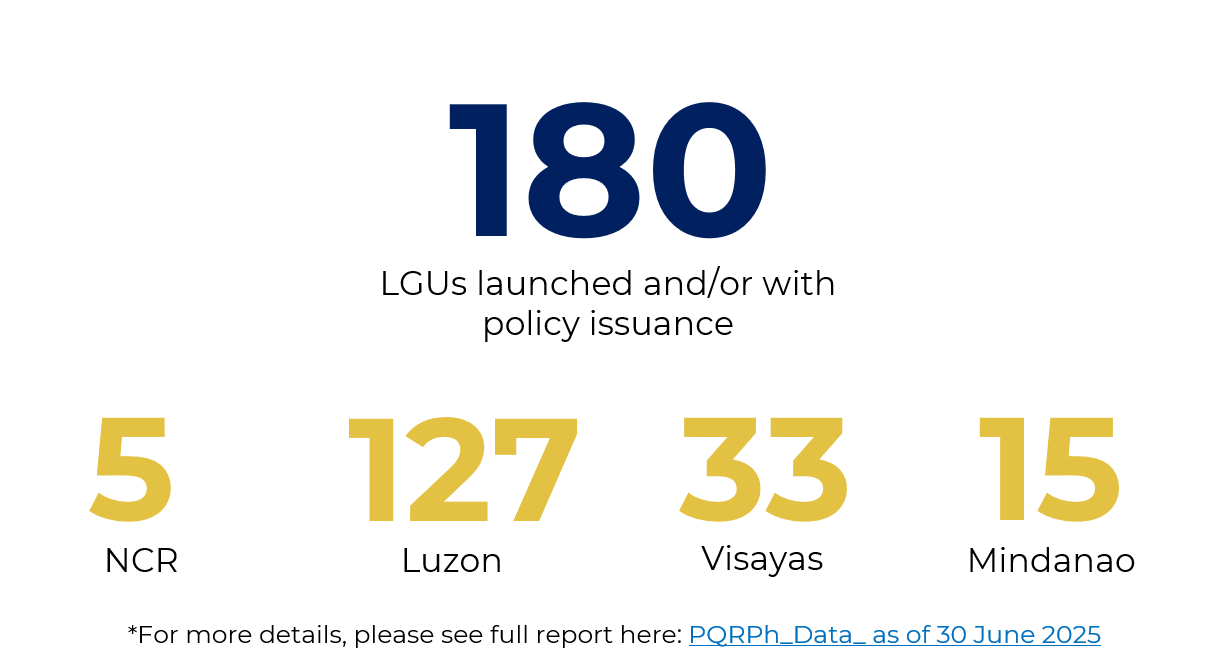The Paleng-QR Ph program, jointly developed by the Bangko Sentral ng Pilipinas (BSP) and the Department of the Interior and Local Government (DILG), aims to build the digital payments ecosystem in the country by promoting cashless payments in public markets and local transportation, particularly tricycles.
Capitalizing on the QR Ph initiative, the program seeks the policy championship and enjoins local government units (LGUs) to push for the acceptance of digital payments among market vendors, community shopkeepers, and tricycle operators and drivers (TODA) in all cities and municipalities in the country.
The Paleng-QR Ph program highlights the significance of market purchases and local transportation fares as basic components of an average Filipino’s typical payment pattern. Until a market vendor and tricycle driver can accept digital payments, transitioning to cashless transactions would be difficult for an average Filipino consumer.
The program was inspired by the student policy competition finalists from the University of the Philippines–Los Baños in the 2021 BSP Youth Summit.
Paleng-QR Ph Plus
In November 2022, the Paleng-QR Ph Plus program branding was introduced. The use of “Plus” aims to capture the broader target market of the program to expand the digital payment acceptance in every city and municipality in the country. It also better reflects the coverage of ordinances of LGUs that include other business establishments in addition to market vendors and TODA as specified in the joint memorandum circular (JMC) issued on 22 June 2022.
DILG-BSP joint memorandum circular
On 21 June 2022, the DILG and the BSP signed a joint memorandum circular enjoining LGUs to implement the Paleng-QR Ph program. The JMC outlines the implementation guidelines and the roles and responsibilities of the program’s participants: the LGUs, DILG, BSP, and participating FSPs.
LGU
The LGUs are expected to issue policies and ordinances to incentivize or mandate the use of QR Ph digital payment by market vendors, tricycles, and other such merchants. Moreover, LGUs shall also assist the onboarding of these target users to a transaction account, such as by organizing an “account opening day,” in coordination with FSPs who have QR Ph capabilities. An LGU may partner with as many FSPs as deemed appropriate.
FSP
Participating FSPs are expected to, among others, provide customer assistance booths, including QR code printouts, during the conduct of the “account opening day(s)” by the LGUs.
DILG and BSP
The DILG and BSP shall provide technical assistance to the LGUs on account onboarding, digital payments and financial literacy. They are also expected to help raise awareness about the Paleng-QR Ph program.
Program components
The key components of the program are as follows:
- Policy issuance(s) of the LGUs to incentivize or mandate the use of QR Ph digital payment by market vendors, tricycles, as well as other such merchants, business owners, and forms of local transport.
- Provision of assistance by the LGU in the onboarding of merchants and local transport operators to a QR Ph-ready transaction account, in coordination with any or all financial service providers (FSPs) that already have QR Ph capabilities.
- Conduct of financial literacy programs by the LGUs, in coordination with the BSP, DILG and participating FSPs, on key topics such as effective use of digital payments in business; financial services for micro and small enterprises; and financial consumer protection.
Data Snapshot
- As of 30 June 2025, 180 LGUs* have conducted launch activities and/or have issued policies in support of the Paleng-QR Ph program.

Frequently Asked Questions (FAQs)
English
Filipino
Program Collaterals
Click on image to download high-resolution file:
